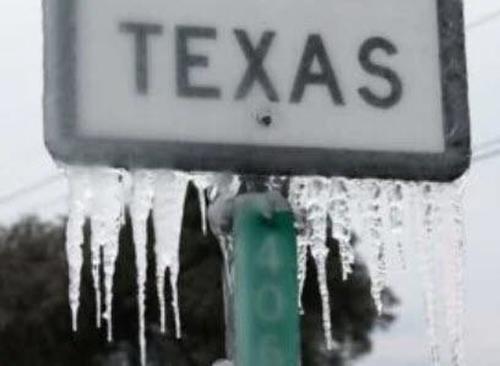Ding! Ding! Ding! Alarm bells should be ringing as Alberta power grid twice hovered near the brink
For the second time in three days, the Alberta Electric System Operator (AESO) has issued a “grid alert” on Dec. 1 and called on people to conserve energy due to cold weather and a lack of wind.
They tweeted, “Reminder to try and conserve energy between 4 p.m. and 7 p.m.”
This, in one of the most energy-rich jurisdictions on the entire planet, with the third-largest oil reserves, coal under much of its soil, and more natural gas than God.
This is ludicrous.
Why did this happen? Alberta has almost completely shut down coal, and built 1,138 megawatts of solar and 3,618 megawatts of wind generation. At 4:07 p.m. on Dec. 1, wind had fallen to 35 megawatts, and solar to 20.
Much of the coal fleet has been converted to natural gas, so at least they have something to fall back on.
And it’s absolutely necessary because of the continued construction of additional wind turbines, diluting the fleet with intermittent power.
Twice, in one week, the Alberta grid has tottered on the brink. The brink of what? Do we want to find out? Maybe we could ask Texas how much fun that was in February of 2021.
This is happening when nearly everyone is still driving a gasoline or diesel-powered vehicle. Electric vehicles are very much the exception, not the rule.
Yet the federal government has decreed in its last budget that by 2035, you will no longer be able to purchase a gasoline or diesel-powered light vehicle. They’ll have to be zero emissions, which means either electric or hydrogen vehicles. But the purported hydrogen economy doesn’t exist, at all, right now. It will take decades to put in place.
So what happens when everyone in Calgary, Edmonton, Red Deer, Stettler and Oyen comes home from work and plugs in their EV? On Dec. 1, the AESO chose a graphic suggesting people not turn on their dishwashers, which draw an average of 10 amps. Every extended range Ford F-150 Lightning and Chevy Silverado EV comes with an 80 amp charger, which requires a 100 amp service – just for the charger. That’s equal to the service of a typical house built prior to this century.
And even if no one buys an electric pickup and they all buy electric Teslas running on 30 amp chargers, that’s still three times the power draw of the dishwasher AESO was so kind to warn Albertans about.
And while it was cold in Alberta on those days, it wasn’t extreme. At -30 C, those wind farms have to shut down lest they shatter from the cold.
This is not a “once in 100-year flood event,” as we hear from weather forecasters. This happens time and time and time and time and time and time and time and time and time and time and time and time again in Alberta, when wind power production drops to next to zero.
And, of course, solar drops to zero every single night. Forever. Every. Single. Night.
Alberta leads, Saskatchewan follows
Saskatchewan is well on this path. SaskPower intends on building 3,000 megawatts of wind and solar in the next few years. On November 7, it announced a further 700 megawatts of wind and solar – 400 megawatts of wind and 300 megawatts of solar.
On December 6, a cold day, SaskPower’s entire grid produced 3,456 megawatts.
So, what happens in this province, when we build out all this wind and solar, and we’re all driving electric vehicles, and the wind simply dies? And we’ve shut down our coal, and maybe we haven’t built enough natural gas, and nuclear reactors are delayed and over budget?
What then?
Do we, quite literally, freeze in the dark?
We can’t build a power grid where “grid alerts” become routine. I don’t ever want to see a grid alert in Saskatchewan because it got cold one day. This is Saskatchewan. It gets cold here. Any day. And I don’t want to see a grid alert because the wind fails. Because it does that, too.
We are a 21st century society in a G7 nation. We’re not some warm equatorial backwater Third World nation where, if the grid becomes unstable, we’ll be okay. We will not be okay. Someone’s grandma will end up freezing to death. And then someone’s dad. And someone else’s kid. Maybe that’s your grandma, dad or kid.
Remember Texas.
As evidenced twice in a week, the Alberta grid can barely handle the demand we have, now, before we switch most of our transportation system to electric vehicles. What happens when half our vehicles are EVs, and the wind doesn’t blow? No one goes to work?
When will someone else in the media declare, “The emperor has no clothes?”
Maybe you might want to ask them why they aren’t ringing the alarm bell, too? Ding! Ding! Ding!
Brian Zinchuk is editor and owner of Pipeline Online and occasionally contributes to the Frontier Centre for Public Policy. He can be reached at brian.zinchuk@pipelineonline.ca.



